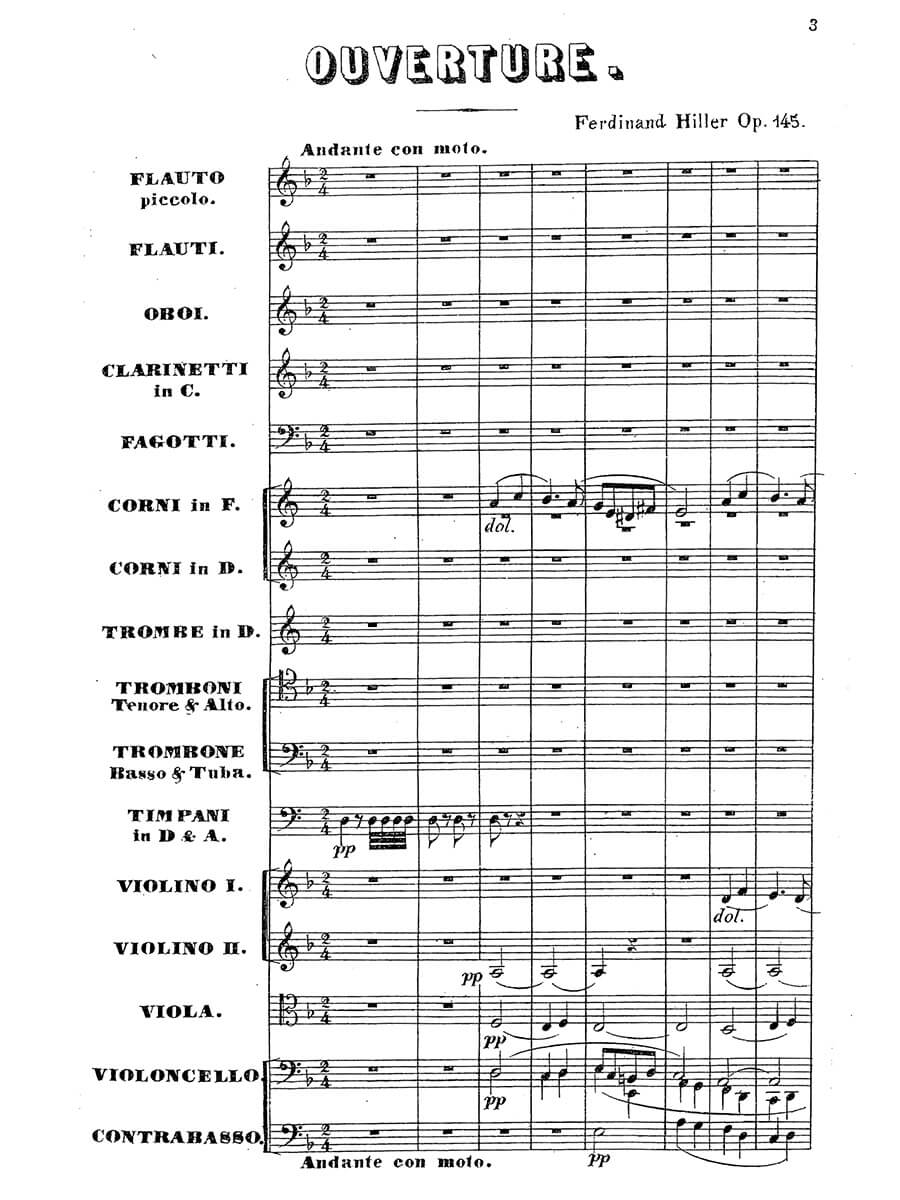Overture to Schiller’s Demetrius Op. 145
Hiller, Ferdinand
24,00 €
Preface
Ferdinand Hiller – Overture to Schiller’s Demetrius Op. 145
(b. Frankfurt, 24 October 1811 – d. Cologne, 11 May 1885)
Preface by Amanda Ruppenthal Stein, 2020
Ferdinand Hiller was one of the most important and well-connected musicians in Germany in the mid-19th century. The child of a wealthy and assimilated Jewish merchant, Hiller was a piano prodigy from a young age and could trace his pedagogical lineage through his teacher Hummel back to Mozart.1 As pianist, composer, conductor, writer, and teacher, Hiller was well-liked and kept a wide network of friends and colleagues. He was a direct contemporary of Felix Mendelssohn, with whom he was personally and professional close, but outlived him by almost four decades, and has received only a fraction of the scholarly attention compared to his more famous friend. Throughout his career, Hiller was champion of the musical heritage of the Classical era, conservative in both his own compositions and in those he advocated for as a conductor and educator.
Robert Schumann recognized Hiller’s talent as a composer at a young age. Writing of his Etudes for piano, Op. 15 (1835), Schumann observed a devotion to training from conservative masters including his teacher Hummel, an awareness of the musical heritage from Bach, Mozart, and Beethoven, and a strong sense of originality, despite at times a lack of the Romantic ease heard in Chopin and Mendelssohn.2
Through his study with Hummel, Hiller met Goethe in Weimar and visited Vienna, where the pair saw Beethoven on his deathbed.3 He studied and worked briefly in Paris and Italy, before returning to Germany in the 1840s. His first major success was the oratorio, Die Zerstörung Jerusalems, Op. 24, based on the destruction of the first temple in Jerusalem in 586 BCE, which premiered at the Leipzig Gewandhaus on April 2, 1840.4 After brief sojourns in Dresden and Düsseldorf, Hiller settled in Cologne, holding the position of the city’s Kapellmeister from 1850 until his retirement in 1884.
Read full preface > HERE
Score Data
| Edition | Repertoire Explorer |
|---|---|
| Genre | Orchestra |
| Size | 210 x 297 mm |
| Printing | Reprint |
| Pages | 76 |
